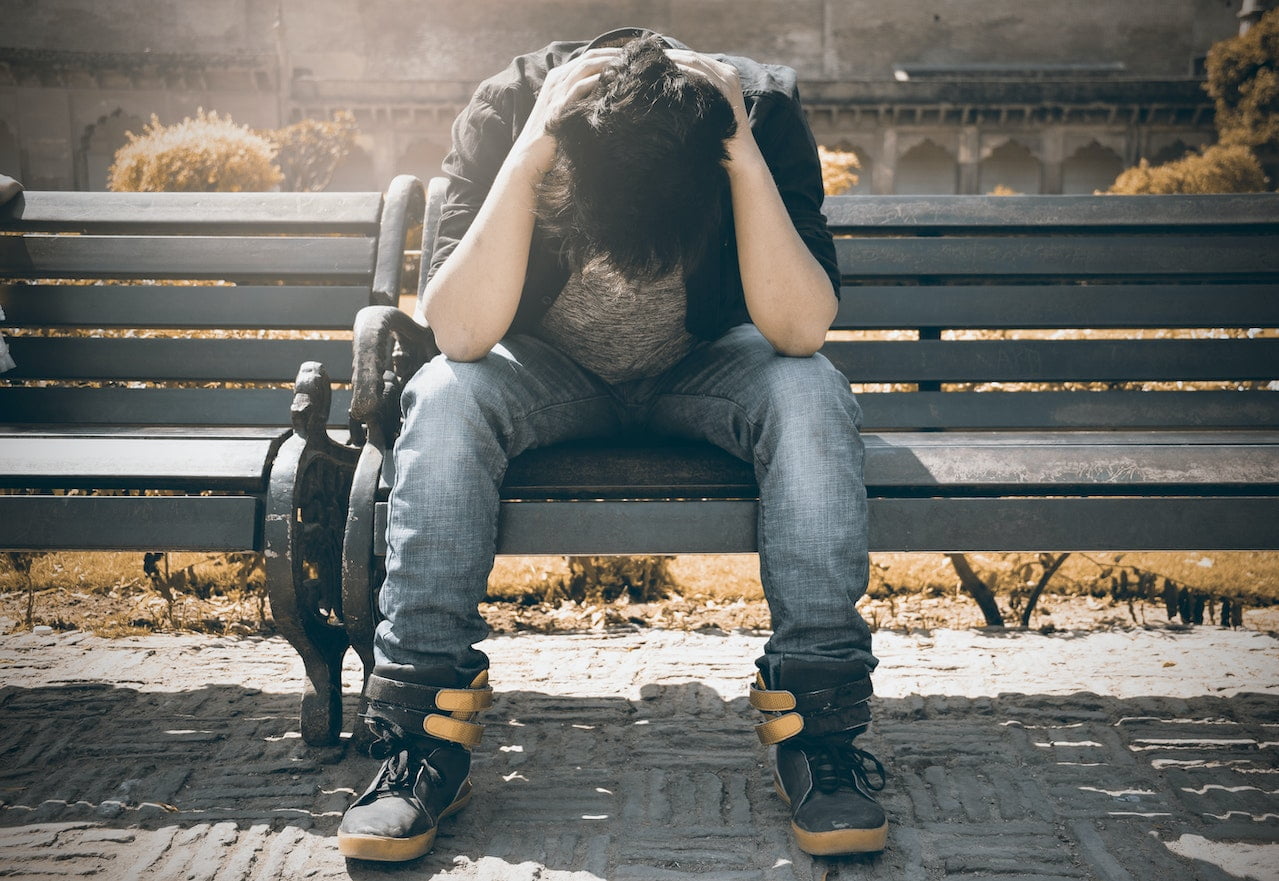If you drink alcohol then you’ll know how it can affect you in some ways, the relaxed state, euphoria, sedative effects, hangover, anxiety, nausea and diarrhoea.
It’s a substance that affects people differently according to how much they drink and how often. Of course, excessive drinking habits lead to increasingly negative effects.
In England, there are 602,391 dependent drinkers.[1] In the UK, in 2020, there were 8,974 deaths due to alcohol.[2] In 2021, 19% of people in the UK were drinking harmful amounts of alcohol. [3]
Whether you or someone you care about drinks regularly, addiction can occur, and knowing how to approach quitting is important. It could be the difference between life and death if you’re dependent.
How Alcohol Affects the Brain

Alcohol is a really strong substance with psychoactive effects. This means it literally alters the firing of neurotransmitters in your brain (i.e. dopamine), brain chemistry, and it causes the GABA amino acid in the brain to become dysregulated.
This is why, of course, when you drink in small doses you might feel relaxed and happy, but it’s also what causes dizziness, slurred speech, vomiting, and unconsciousness.
When a person drinks heavily and frequently, alcohol creates new behavioural pathways in the brain making the act of drinking automatic. It also means that the body’s natural ability to feel good through the release of its own happy chemicals is seriously depleted.
Amongst many other consequences, this really disrupts a person’s mood.
Alcohol Withdrawal Symptoms
When any person drinks a lot they can suffer from a rotten hangover because of the effects of alcohol. It takes time for the body to readjust and get back to normal. For the person who is addicted or dependent, not only will they experience hangover symptoms, they’re also going to experience withdrawal.
Withdrawal is what occurs when the central nervous system is trying to adjust to the lack of alcohol. In addition, the body has come to rely on the substance. When you stop, you start to experience mental and physical symptoms as the body reacts to the cessation of alcohol.
This is partly why cravings for alcohol are so strong. As well as other reasons, you crave because your body wants to feel the “normal” it has developed under the influence of frequent drinking habits.
1. The First Stage of Alcohol Withdrawal
People who have alcohol abuse issues will experience mild symptoms within the first 6-24 hours.
The mild symptoms of alcohol withdrawal include:
- High blood pressure
- Heart palpitations
- Rapid heart rate
- Cold sweats
- Agitation and anxiety
- Fatigue
- Nausea
People with severe addiction might also start experiencing hallucinations within this period of time.
2. The Second Stage of Alcohol Withdrawal
For those who are addicted and have a high alcohol intake, then the next stage of withdrawal tends to set in around 24-72 hours.
This introduces severe alcohol withdrawal symptoms. For those who have an alcohol dependency, it’s important the person isn’t alone during this time period.
This stage includes dangerous symptoms:
- Delirium tremens comprising confusion, paranoia, hallucinations, sensitivity to light, a coma-like sleep, and seizures
- A fever
- Psychomotor agitation
- Dehydration
- Heart attack
3. More about the dangers of alcohol withdrawal
Because it can take a while for symptoms of withdrawal to set in, some heavy drinkers might think they’ve got through any impending health risks.
It’s really important during this time period to be under the care of a doctor so that they can monitor your symptoms and provide medication when the dangerous symptoms kick in.
As well as the symptoms above, it’s important to be aware of other ways that withdrawal and alcohol use affect you. These are the sorts of things that also require medical attention.
Dehydration caused by alcohol leads to electrolyte imbalances and thereafter medical complications such as those linked to mental confusion and an irregular heartbeat.
Malnutrition develops because alcoholism leads to a thiamine deficiency, which for heavy drinkers can result in Wernicke-Korsakoff syndrome. This condition is characterised by impaired motor coordination, mental confusion, and problems with forming new memories and being able to learn.
4. When does Alcohol Withdrawal End?
If you have heavy alcohol use, then severe symptoms of withdrawal are much more likely and they could go on for a while. It really depends on how much you drink, how often, how long you’ve been drinking, and what your personal situation is in relation to age, weight, sex, etc.
Most commonly, the worst of withdrawal takes around a week to get through, though cravings and symptoms can go on for people who are alcohol dependent or who have severe addictions.
5. What are post-acute withdrawal symptoms (PAWS)?
The effects of alcohol consumption can last quite a long time for some people. Alcohol withdrawal syndrome in the case of heavy users, or people who are suffering especially negatively due to individual characteristics, might lead to post-acute withdrawal.
PAWS are what can happen after a few months of sobriety. Though you no longer experience the physical symptoms, psychological symptoms, such as anxiety, insomnia, feelings of overwhelm and cravings can suddenly hit.
This is why it’s useful to be in touch with professional services for a while after achieving abstinence.
6. How long will alcohol withdrawal symptoms last?
If heavy drinking has been a part of your daily life for a number of years, then the worst of withdrawal is likely to last around two weeks. After this, you might still get cravings.
After six months, you’ll start to notice a big difference as your cravings significantly reduce and other areas of your mental and physical health improve.
Can You Quit Drinking Alcohol “Cold Turkey”?

Going “cold turkey” means cutting out alcohol completely on a given day and not returning to it. For some people cutting out alcohol won’t be too serious a problem.
This tends to be people who drink most nights but don’t have a severe addiction. It could be a glass of wine with dinner each night, for instance, and while it might feel mentally uncomfortable to cut out, physically, you’ll be OK.
However, if you have a severe addiction or a dependency then alcohol will have altered your brain chemistry enough that as well as your mood being changed, you’re very likely to experience the mental and physical symptoms outlined above that could be extremely dangerous.
The Risks of Going “Cold Turkey”
People with alcohol dependence are at a high risk of worrying effects, even fatality if they go “cold turkey”.
1. Seizures that can lead to death
Alcohol causes a release of GABA amino acid in the brain. This is what causes you to have slurred speech, to sway and fall about.
When alcohol is taken away and there is a reduction in GABA people can experience the opposite types of symptoms including anxiety, insomnia, and tonic-clonic seizures. Of course, if the person is fitting and alone and/or potentially passes out, it can lead death.
This is why it’s so important to enter a detox facility for alcohol addiction.
2. Alcoholic cardiomyopathy aka heart failure
After years of alcohol abuse, people can develop cardiovascular conditions. It develops as a result of alcohol toxins that build up in the body and weaken the heart. When this happens, the heart is unable to pump blood around the body as effectively.
For middle-aged men, it’s the most common cause of heart disease.
What Can You Do to Help Manage Alcohol Use?

There are a number of things you can do to help manage alcohol use, to cut down, or to quit:
1. Alcoholics Anonymous
Alcoholics Anonymous is a 12 Step fellowship that takes place in venues across the world. No matter where you are, there’s usually an AA meeting nearby and if not, you can find online groups.
These groups focus on acknowledging addiction as a disease and how it’s dominated your life thus far, in finding a “higher power” to draw strength from (whether that’s god, the universe, or something else), and in connecting with others through community actions and doing good to find meaning in life.
2. Tips to cut down on alcohol
It has to be said that cutting down on alcohol if you have a really serious addiction, is unlikely to “just happen”. It takes a considerable amount of work and professional input and guidance.
If you have mild alcohol drinking habits, the following is achievable. If you have a more serious addiction, you can try these tips but it’s advisable to get in contact with NHS alcohol services, or a private alcohol rehab clinic.
- Practise saying no to alcohol. Say it out loud, say it to the room, at various times of the day, write it down along with the reasons you don’t want to drink. When the opportunity arises remember your list of reasons not to drink.
- Avoid triggering situations and people. This is one of the hardest and yet one of the most beneficial exercises you can practise. The truth is, you have to change a lot of habits and much of your lifestyle when it comes to cutting out an addictive substance.
- Develop new hobbies. This helps to keep you focused on healthier activities and directs your attention away from alcohol.
Professional Treatment for Alcohol Use Disorder
Accessing professional treatment for alcohol use disorder, addiction, and dependency is the best way to recover when you’re at that level of alcohol use.
Detoxing and going through psychological and holistic therapies introduces many health benefits for you. As well as cognitive functioning and emotional regulation improving, you also reduce the risk of cancer, dementia, and heart problems.
Quitting alcohol improves your long-term quality of life.
It’s important to have a medical professional support you through detox. This ensures that you wean off alcohol safely where dependency has developed.
At a rehab clinic, you can also be treated for mental health conditions.
Whether it’s because of cognitive behavioural therapy, music therapy, group sessions, family therapy, or a mixture of them all, the success rates at private clinics are the highest in the treatment field.
What Medications are Used to Wean You Off Alcohol?
The main medication used to wean people off alcohol at rehab clinics during detox is Librium. It’s a benzodiazepine. This means that your symptoms are reduced and you’re kept in as relaxed a state as possible as the alcohol leaves your body.
What Happens During an Alcohol Detox?

Over the course of around 14 days, the Librium medication is reduced slowly in a process known as tapering. At the end of the two weeks you’re weaned off the alcohol as well as the benzodiazepine making you physically substance-free.
While you might be physically sober, you can obviously still experience psychological cravings and symptoms related to your addiction.
This is why rehab clinics advise people to stay for around four weeks. It gives you the time to participate in psychological and holistic treatments and healing, as well as develop healthy new behaviours.
This is imperative in order to manage sobriety for the rest of your life.
Final Thoughts
If you have an addiction to alcohol, then the safest way to quit is through a detox and receiving various other therapies at a private rehab clinic. While some people might think it’s OK to go “cold turkey”, it can actually lead to dangerous risks and at its worst be fatal.
There are private clinics throughout the UK, to find out where your nearest is, contact OK Rehab.
FAQs
Below, we provide some answers to common questions about the drug detox process:
Is it OK to stop drinking suddenly?
It depends how much you drink and how often. If you have a serious alcohol addiction or have developed an alcohol dependency then it’s dangerous to quit “cold turkey”.
What does quitting cold turkey feel like?
If you have a severe alcohol addiction then quitting “cold turkey” is likely to give you delirium tremens including heart palpitations, the “shakes”, profuse sweating, hallucinations, and possible seizures that could cause fatality.
Why is quitting cold turkey from alcohol more dangerous than opiates?
The effects of alcohol withdrawal are equally as tricky as opioid withdrawal except you can also experience seizures. For some, this can lead to death.
References
[3] https://www.drinkaware.co.uk/research/alcohol-facts-and-data/alcohol-consumption-uk#harmfuldrinking





